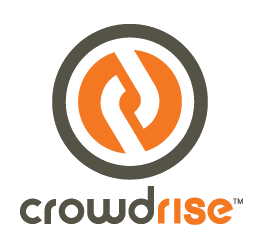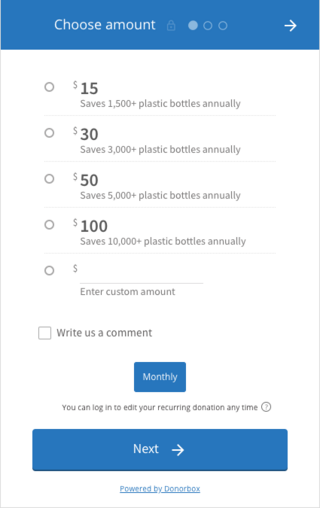Related Research Articles

A web hosting service is a type of Internet hosting service that hosts websites for clients, i.e. it offers the facilities required for them to create and maintain a site and makes it accessible on the World Wide Web. Companies providing web hosting services are sometimes called web hosts.

A fansite, fan site, fan blog or fan page is a website created and maintained by a fan or devotee about a celebrity, thing, or particular cultural phenomenon.
Save Karyn is the name of both a Web site and a book. SaveKaryn.com was the first notable cyberbegging site. Save Karyn: One Shopaholic’s Journey to Debt and Back is the book chronicling the events leading up to and through the height of the site's popularity.
Karyn E. Bosnak is an American author of two published books: Save Karyn and 20 Times a Lady, the latter of which became the movie "What's Your Number?" starring Anna Faris and Chris Evans.

Begging is the practice of imploring others to grant a favor, often a gift of money, with little or no expectation of reciprocation. A person doing such is called a beggar or panhandler. Beggars may operate in public places such as transport routes, urban parks, and markets. Besides money, they may also ask for food, drink, cigarettes or other small items.

Personal web pages are World Wide Web pages created by an individual to contain content of a personal nature rather than content pertaining to a company, organization or institution. Personal web pages are primarily used for informative or entertainment purposes but can also be used for personal career marketing, social networking with other people with shared interests, or as a space for personal expression.

CrowdRise is a for-profit crowdfunding platform that raises charitable donations. CrowdRise was founded by Edward Norton, Shauna Robertson, and the founders of Moosejaw, Robert and Jeffrey Wolfe. CrowdRise was acquired in 2017 by GoFundMe.
Aggressive panhandling is a legal term for unlawful forms of public begging. Proponents of such legislation advocate placing limits on these activities. Some opponents believe statutes prohibiting aggressive panhandling are part of the "criminalization of homelessness" and argue that such laws are discriminatory or unevenly enforced.
Begslist, Inc. is an Internet begging and online donation website. It is the online version of traditional begging or panhandling via the Internet and a way for people to get help with their financial problems through begging online, a practice known as "cyberbegging" or "digital panhandling". Begslist allows visitors to post their pleas for help on the website in the hopes to receive donations. PayPal buttons are added to each of the postings for readers to send donations to those asking for help through secured payments and money transfers through the Internet.

GoFundMe is an American for-profit crowdfunding platform that allows people to raise money for events ranging from life events such as celebrations and graduations to challenging circumstances like accidents and illnesses. From 2010 to the beginning of 2020, over $9 billion has been raised on the platform, with contributions from over 120 million donors.
Crowdfunding is a process in which individuals or groups pool money and other resources to fund projects initiated by other people or organizations "without standard financial intermediaries." Crowdfunded projects may include creative works, products, nonprofit organizations, supporting entrepreneurship, businesses, or donations for a specific purpose. Crowdfunding usually takes place via an online portal that handles the financial transactions involved and may also provide services such as media hosting, social networking, and facilitating contact with contributors. It has increased since the passage of the Jumpstart Our Business Startups (JOBS) Act.

FundRazr is a free crowdfunding and online fundraising platform released in 2009. FundRazr operates internationally in 35+ countries with the largest markets being United States, Canada, United Kingdom and Australia. It allows users to run a wide-range of crowdfunding campaigns by creating fundraising pages and sharing it via social media, messaging apps, email and more to raise money for over 100 types of causes such as nonprofit, medical care, education, community help, poverty alleviation, arts, memorials, and animal rescue causes. FundRazr also works with more than 4000 nonprofits, charities and social enterprises with an advanced fundraising toolset for free. The digital fundraising platform provides 8 different campaign types. They include microproject fundraising, peer-to-peer campaigns, wishlist campaigns, recurring donations, branded sponsorship campaigns, DIY projects, sweepstake campaigns, and storefront campaigns.
YouCaring was a crowdfunding website for personal, medical, and charitable causes. The company was a Certified B corporation based in San Francisco, California. YouCaring did not take a percentage of funds raised on its site, or charge those raising funds a fee. The company relied on voluntary donations from donors to fund operations. YouCaring was acquired by GoFundMe in 2018.

Tilt.com, Inc. was a crowdfunding company founded in 2012 that allowed for groups and communities to collect, fundraise, or pool money online. James Beshara and Khaled Hussein launched the platform under the name Crowdtilt out of Y Combinator.
CrowdFundEDU was a US-based private for-profit company founded in 2012 that provides a crowd funding website for education. People hold online fundraisers to get contributions for tuition, student loans, books and supplies, sports equipment, events and extracurricular activities. Student debt is recognized as a growing financial burden to young adults, but crowd funding brings an alternative to this form of lending and is considered by some to be one of the greatest financial creations of the digital age.
The dark web is the World Wide Web content that exists on darknets: overlay networks that use the Internet but require specific software, configurations, or authorization to access. Through the dark web, private computer networks can communicate and conduct business anonymously without divulging identifying information, such as a user's location. The dark web forms a small part of the deep web, the part of the web not indexed by web search engines, although sometimes the term deep web is mistakenly used to refer specifically to the dark web.
Crowdfunding is the practice of funding a project or venture by raising money from a large number of people, typically via the internet. Crowdfunding is a form of crowdsourcing and alternative finance. In 2015, over US$34 billion was raised worldwide by crowdfunding.

Homelessness in the United States has differing rates of prevalence by state. The total number of homeless people in the United States fluctuates and constantly changes, hence a comprehensive figure encompassing the entire nation is not issued, since counts from independent shelter providers and statistics managed by the United States Department of Housing and Urban Development vary greatly. Federal HUD counts hover annually at around 500,000 people. Point-in-time counts are also vague measures of homeless populations and are not a precise and definitive indicator for the total number of cases, which may differ in both directions up or down. The most recent figure for 2019, was 567,715 individuals nationally that experienced homelessness at a point in time during this period.

Donorbox is a technology company headquartered in San Francisco, California. Established in 2014, the company provides an online fundraising platform enabling individuals and nonprofit organizations to facilitate online donations. The platform is utilized by various types of organizations, including charities, religious institutions, schools, animal welfare groups, political campaigns, among others.
GiveSendGo is a Christian crowdfunding website. GiveSendGo has attracted controversy for allowing far-right extremists to fundraise, including neo-Nazis, white supremacists and hate groups.
References
- ↑ Abel, David, "Panhandlers move from street to Internet: Online sites offer a fertile venue for some in need", Boston Globe, October 26, 2009.
- ↑ Lubinger, Bill (2007-04-11). "Need a new couch? Log on and beg". The Seattle Times. Retrieved 2018-03-15.
- ↑ Holson, Laura M. (June 5, 2018). "As Funeral Crowdfunding Grows, So Do the Risks". The New York Times.
- ↑ Associated Press. "Site's ambition: the eBay of giving", San Jose Mercury News, April 7, 2007. Retrieved: May 3, 2007